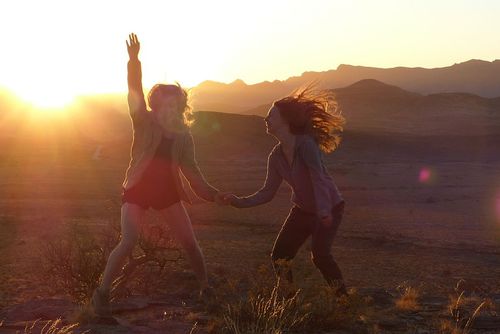The Carnivore Conservation and Research Project is set in the heart of the breath-taking Namibian desert and is home to crucial research helping to prevent human-wildlife conflict in the area, and as a result is saving the lives of the local big cat population.
Many farmers in the region see local big cats as threats to their livestock, and in turn their livelihoods, sadly this often results in the farmers killing the already endangered animals. The project aims to prevent this from happening by sharing the data gathered by the in-country team and volunteers with the farmers so that they are able to track the movements of the predators and prevent loss to their livestock.
As a volunteer you will be working with the project team to care for resident cheetahs and gather required data through a number of crucial activities including; setting camera traps to record the more elusive animals, game counts and mapping.
Volunteers may also assist with capture, mark, release and radio telemetry tracking. The important data collected via these activities will go a long way to preventing human-wildlife conflict. You could also have the chance to help make the seasonal wine (Jan-Mar) that the project is famous for, and it is all hands-on deck in the worlds driest vineyard! You may even get the chance to try a glass or two…
There is a whole lot to do on this incredible research project, so come and join in!
Itinerary
Day 1
After arriving into Windhoek Airport you will be met at arrivals and transferred to your overnight accommodation which takes approximately 45 minutes. Upon arrival you will spend the afternoon and evening settling in and relaxing before taking a transfer to Neuras the following day.
Day 2
Today you will transfer to the research site at Neuras. This journey takes round 4-5 hours and as you arrive you will see the spectacular environment in which Neuras is located before tucking into dinner and resting up for the day ahead.
Day 3-15
The next two weeks will be spent taking part in a number of incredible activities at the project site, and you will really be getting involved in the crucial conservation work happening here. With a focus on data collection, you will frequently be heading out into the desert to take part in telemetry tracking, game drives and all of the other activities mentioned above!
Day 16
Today will be your final day at Neuras. After breakfast you’ll begin your journey back to your accommodation where you will be able to share stories of your adventures with fellow volunteers.
Day 17
It’s time to head out. After fond farewells you will be taken back to Windhoek Airport to begin your journey home or onward travel plans.
Project Activities
Game Counts
You will regularly take part in game-counts along different transect routes in the study areas, taking notes on numbers, age, sex and group compositions of local mammals.
Camera Traps
You will be helping to set camera-traps, which are checked to record the activities of some of the areas more elusive carnivores.
Hiking and Exploring
Volunteers enjoy lots of hiking and exploring in the area, learning about the native flora and fauna and the incredible scenery here is something you will never forget!
Radio Telemetry Tracking
GPS collars are only one piece of the puzzle when it comes to tracking wild animals. Telemetry tracking enables you to locate the animals out in the field and make direct observations on things like health, deaths and births. Please note this is dependent on animals that free roam onto the property and is not a guaranteed part of the itinerary.
Capture, Mark, Release
The team uses GPS collars to track some of the local big cats, and if the situation arises you may be asked to help capture a carnivore via a cage trap, mark it with a GPS collar and then release it back into the wild so that it can be monitored in the future. Please note that this is not a guaranteed activity.
Helping With Wine Making
Neuras is home to a large vineyard, and all of the profits from the wine made here go straight back into conservation efforts. You may have the chance (depending on the season you travel) to help with all stages of the wine making process, maybe even tasting a glass or two!
Other Activities
As this is a very active conservation project, you could be asked to help with any number of tasks that may come up at short notice. This could be anything from repairing one of the reserve fences through to assisting with an animal release so you need to be ready to get stuck in at a moments notice!



